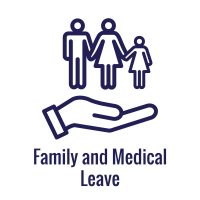Do You Get Paid for FMLA?

Since 1993, workers nationwide have turned to the Family and Medical Leave Act (FMLA) for job-protected time off from work to deal with a serious illness, the birth of a child, or a family health emergency. But one of the most common questions employees have about taking FMLA leave is, “Will I get paid?” Although the short answer is no, a more complete response isn’t so straightforward. While FMLA offers crucial job protections, it does not guarantee income during your leave. However, depending on your employer’s policies and other available benefits, you might still be able to receive some form of compensation.
At James P. Tarquin, P.A., we represent employees throughout Central Florida who are dealing with complex FMLA-related issues, including protecting their right to take leave free from employer interference or retaliation. Here’s what you need to know about whether FMLA leave is paid or unpaid, and how you might be able to get paid while taking job-protected time off.
What Is FMLA?
The Family and Medical Leave Act (FMLA) is a federal law that gives eligible employees up to 12 weeks of unpaid, job-protected leave per year for certain qualifying reasons. These include:
- The birth or adoption of a child
- Caring for a spouse, child, or parent with a serious health condition
- The employee’s own serious health condition that prevents them from performing their job
- Certain situations related to a family member’s military service
During FMLA leave, your employer must maintain your group health insurance benefits as if you were still working, and they must reinstate you to your job—or an equivalent one—once your leave ends.
Is FMLA Leave Paid?
Under the law, FMLA leave is unpaid. That means your employer is not legally required to pay you during your time away from work. However, that doesn’t always mean you’ll go without income. There are a few situations where you may be able to receive pay while on FMLA leave.
Using Paid Leave Alongside FMLA
One of the most common ways employees get paid during FMLA leave is by using their accrued paid time off (PTO), vacation days, or sick leave. Employers are allowed to require or permit employees to use this accrued leave during their FMLA absence. For example, if you have two weeks of vacation saved up, you might choose to use (or your employer might require you to use) those two weeks of paid leave at the beginning of your FMLA leave period.
Some employers automatically require employees to “substitute” paid leave for unpaid FMLA leave, while others give you the option. It’s important to check your employer’s policies or speak to your HR department to understand how your accrued leave works with FMLA.
Short-Term Disability Insurance
If you’re taking FMLA leave because of your own medical condition, you may be eligible for short-term disability insurance benefits. These benefits are typically offered by private insurers through your employer and can replace a portion of your wages (often 60% to 70%) while you’re unable to work due to illness or injury.
Although short-term disability is not part of FMLA, the two often run concurrently. That means while you’re out on FMLA leave, you could be receiving income through a short-term disability plan—helping bridge the financial gap left by FMLA’s unpaid status.
Paid Family Leave (Not in Florida)
Some states have enacted paid family leave programs that supplement or replace unpaid FMLA leave with paid benefits. Unfortunately, Florida does not currently offer a paid family leave program. This means that unless your employer voluntarily provides paid family leave benefits, or you qualify for another type of paid leave, FMLA leave in Florida remains unpaid by default.
That said, some employers in Florida may offer more generous leave options than what is required under federal law. Review your employee handbook or talk to your HR department to find out if your employer provides paid leave benefits that go beyond FMLA.
Employer-Provided Benefits and Policies
In some cases, employers voluntarily offer paid parental leave, maternity/paternity leave, or caregiver leave that may coincide with FMLA. These benefits are not mandated by the FMLA, but they may help cover some or all of your income while you are out. Always ask your employer about what benefits are available to you.
It’s also important to note that employers cannot retaliate against you for taking FMLA leave, paid or unpaid. If you are being pressured not to take leave, threatened with job loss, or punished in any way for exercising your FMLA rights, you may have grounds for a legal claim.
Know Your Rights and Options
Understanding how you’ll support yourself and your family during FMLA leave is an essential part of planning for time away from work. While FMLA itself does not provide paid leave, using a combination of employer-provided PTO, short-term disability insurance, and other benefits can help you stay financially afloat during your absence.
If your employer refuses to let you take FMLA leave, retaliates against you for taking it, or interferes with your ability to use accrued paid leave, they may be violating your rights under federal law.
Contact an Ocala Employment Law Attorney
At James P. Tarquin, P.A., we’ve been fighting for the rights of Florida employees for over 20 years. We help workers understand their FMLA rights, deal with employers who violate those rights, and pursue legal remedies when necessary. If you’ve been denied FMLA leave or faced retaliation after taking time off, we can help.
Contact us today for a free consultation and find out how we can stand up for your rights as an employee.